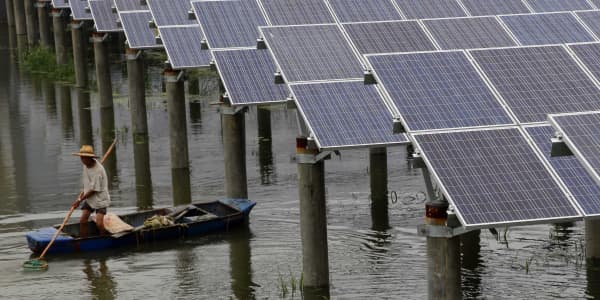Beijing and Moscow are competing for influence and profits in Central Asia, invoking a centuries-old battle for the energy-rich area, but political pundits are at odds as to who's winning so far.
Home to some of the world's largest natural gas and coal reserves, Central Asia has been a region of geopolitical strife ever since the original 'Great Game,' a reference to Britain and Russia's political rivalry during the 19th century.
The region has traditionally yielded to Russian power due to its inclusion in the Soviet Union, but China has emerged as a new patron in recent years through new trade relations and investments. Countries like Kazakhstan and Turkmenistan are strategic players in Beijing's 'New Silk Road' project, an ambitious attempt to expand Chinese infrastructure across three continents.
Most importantly, Beijing is a net importer of oil and needs the natural resources and raw materials from Central Asia at affordable prices, noted Bhavya Sehgal, head of Asia-Pacific research at Frontier Strategy Group.
In reaction, Moscow has ramped up efforts to secure its position as the region's leading superpower. In January, President Vladimir Putin formally launched the Eurasian Economic Union, comprised of Russia, Belarus, Kazakhstan, Armenia, and Kyrgyzstan.
"Russia is reluctant to further empower China, even in a multilateral setting, as it prefers instead to promote its own regional economic architectures," noted Alexander Cooley, professor of political science at Columbia University, in a March research paper.
Moreover, Russia is making a concerted effort to increase its military and security presence, political risk firm Stratfor argued in a recent report. Putin is likely to use the threat of spillover violence from Islamist militancy in Afghanistan to justify the move, when in reality the Kremlin remains preoccupied with Chinese and U.S. influence, the report said.

Economics vs politics
In terms of economic clout, Beijing is widely perceived as having the upper hand due to Russia's protracted recession, which the World Bank estimates to last for the next two years. "The current economic tumult as a result of Russia's ruble crisis has further spotlighted China's crucial role as a regional economic stabilizer," Cooley said.
With China providing financing for more Russian projects and companies in light of Moscow's deteriorating economy, the bilateral relation balance is leaning towards Beijing, agreed Sehgal of Frontier Strategy.
However, Russia is likely to remain the dominant political power, according to Zhang Hongzhou, associate research fellow at Singapore's Nanyang Technological University.
Read MoreWhat Russia-China relations mean for the dollar
"Despite China's growing economic influence in Central Asia, Russia will continue to play a substantial role in the region through a combination of energy, culture and military bonds that run too deep for China to severe in the short to medium term."
Zhang points to Central Asia's reliance on migrant remittances from Russia. In Kyrgyzstan and Tajikistan for example, half the workforce work in Russia and remittances account for 25 percent of each nation's gross domestic product.
The biggest advantage Russia holds in Central Asia is soft power, Zhang continued. Russian is the dominant language in Central Asia and many of the region's elites retain close connections with Russian leaders despite the Soviet dissolution, he said.
Others hold a more neutral stance.
"I view the relationship between China and Russia in Central Asia as more cooperative than confrontational," said Jim Rickards, chief global strategist at West Shore Funds, referring to both countries' participation in the Shanghai Cooperation Organization, a partnership with Central Asian governments. "To some extent, they are both working together to fill a void left by U.S. withdrawal from Afghanistan and the Middle East."




